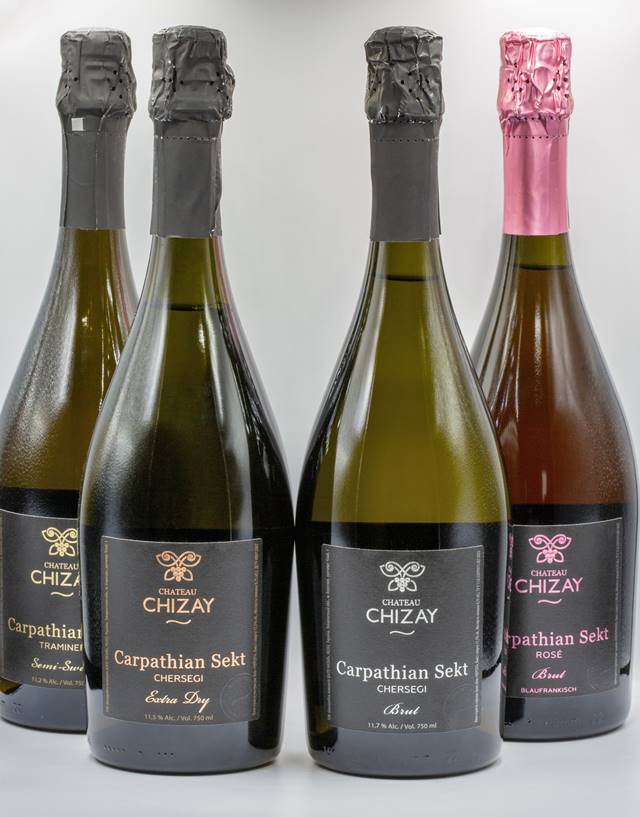
Ukraine's wine-making tradition is like an ancient vine with roots that stretch back thousands of years. Despite the recent turmoil from the 2022 Russian invasion and ongoing conflict, Ukrainian wines are making their way to the U.S. market, offering a testament to the resilience and cultural significance of winemaking in Ukraine.
It's almost paradoxical to think that in the midst of a war, people continue to produce and export wine. Yet, these small comforts, like wine and coffee, remain an integral part of daily life in Ukraine. Beyond that, they hold deep cultural value for Ukrainians and symbolize a thread of normalcy and heritage.
The Arrival of Ukrainian Wines in the U.S.
The selection of Ukrainian wines arriving in the U.S. is as diverse as it is intriguing. Among the bottles now available are:
- Artania White 2022: A white wine from Beykush, crafted from a blend of six grape varieties grown near the Black Sea.
- Chateau Chizay's Sparkling Rosé: Made entirely from Blaufränkisch grapes, this sparkling wine hails from the Zakarpattia region in southwestern Ukraine.
- Stakhovsky's 2022 Orange Wine: Produced from Gewürztraminer, this unique wine also comes from Zakarpattia.
Beykush and Stakhovsky are relatively new players in the wine scene, having released their first vintages within the last decade. In contrast, Chateau Chizay has a slightly longer history, founded in 1995.

A Long and Storied History
Ukraine's viniculture history is rich and ancient, placing it among the birthplaces of wine. This region, which includes Ukraine, Moldova, Georgia, Armenia, and Turkey, boasts over 11,000 years of wine heritage.
The Soviet era imposed a focus on quantity over quality in wine production. However, after Ukraine gained independence in 1991, significant changes in the wine industry began to take shape, particularly from the 2000s onwards.
A large portion of Ukraine's wine production was historically centered in Crimea. The 2014 Russian occupation of Crimea prompted a shift, giving rise to new, artisanal wineries across other parts of Ukraine. The Kyiv Wine and Food Festival, first held in 2014, became a bi-annual event due to its success. Additionally, the establishment of Wines of Ukraine, a group representing small wineries, marked a turning point for the industry.
The Journey of Ukrainian Wines
Importing Ukrainian wines to the U.S. is understandably complex. The journey starts in Zakarpattia, near the Hungarian border, moving through Romania, and from the Romanian port of Constanta to Valencia, Spain, before finally arriving in New Jersey.
For wineries like Beykush, located near the conflict zones, security remains a major concern. Their vineyards have seen bombings and even abandoned military equipment. Despite these challenges, Beykush is planning for the future, planting new grape varieties such as Albariño, Timorasso, Pinotage, and Teti-Kuruk, an indigenous Ukrainian grape.
Perseverance in the Face of Adversity
You can now find these wines in limited quantities in the northeastern U.S. and Washington D.C., as well as online through retailers like Wine.com. The dedication of Ukrainian winemakers in such difficult times is truly inspiring, showcasing their commitment to preserving and promoting their vinicultural heritage.
Supporting Ukrainian wines is more than just a gesture of solidarity. It encourages locals to consume their own products, helping to sustain an industry that supports various economic sectors related to winemaking. The tenacity of these winemakers not only keeps the wine flowing but also ensures that the rich tapestry of Ukrainian culture continues to thrive. So, the next time you raise a glass, consider toasting to the spirit and perseverance of Ukraine.
Founded in 2007, Vinetur® is a registered trademark of VGSC S.L. with a long history in the wine industry.
VGSC, S.L. with VAT number B70255591 is a spanish company legally registered in the Commercial Register of the city of Santiago de Compostela, with registration number: Bulletin 181, Reference 356049 in Volume 13, Page 107, Section 6, Sheet 45028, Entry 2.
Email: [email protected]
Headquarters and offices located in Vilagarcia de Arousa, Spain.